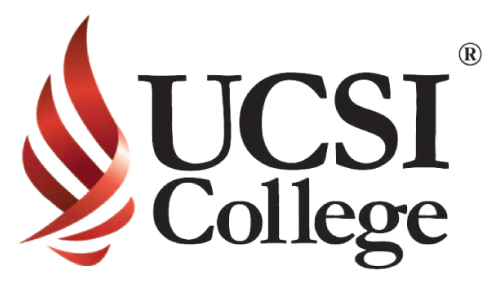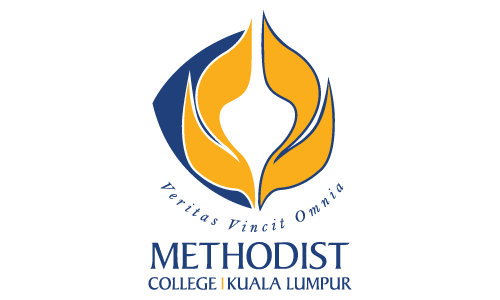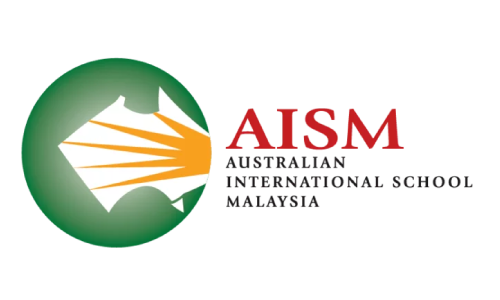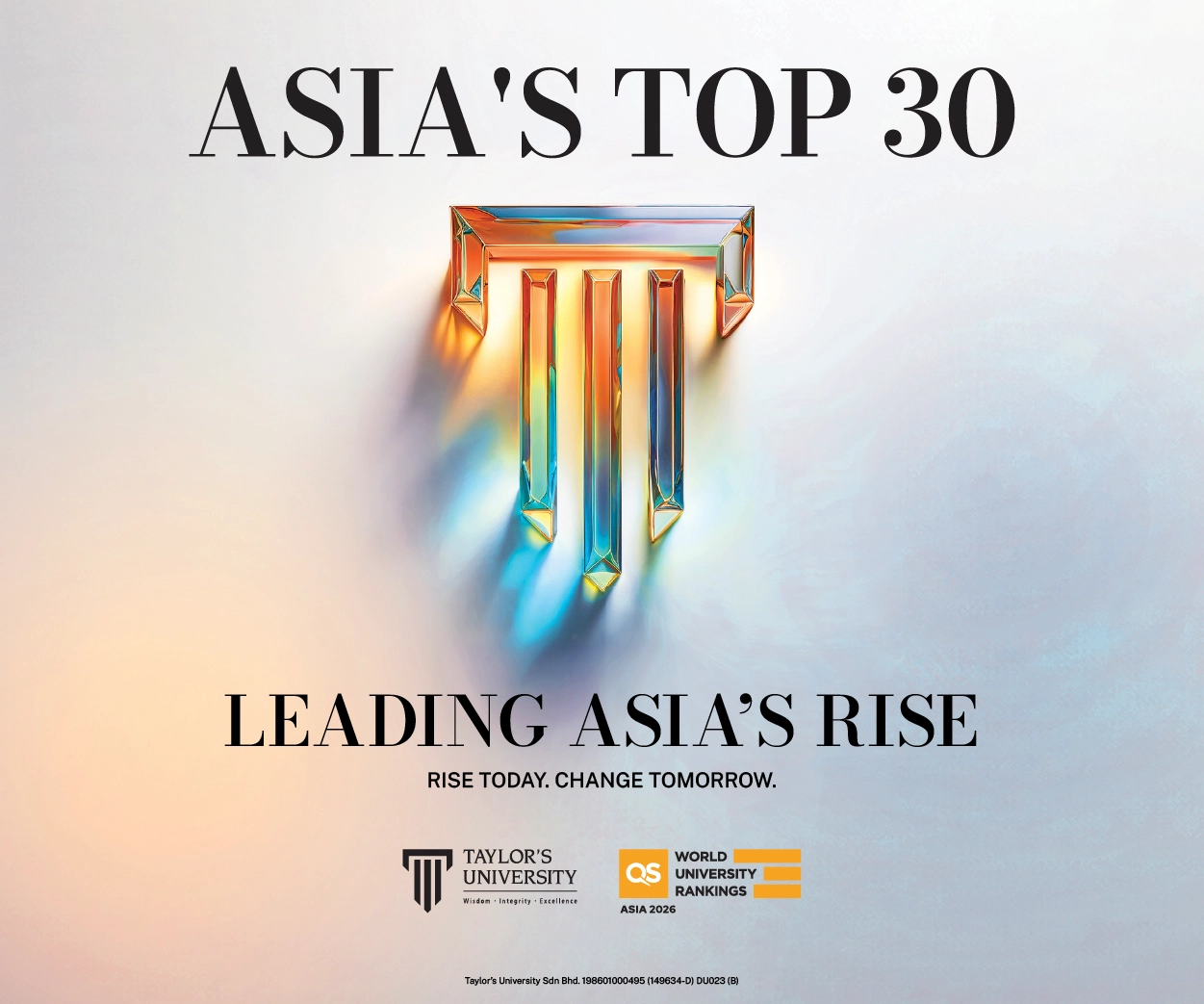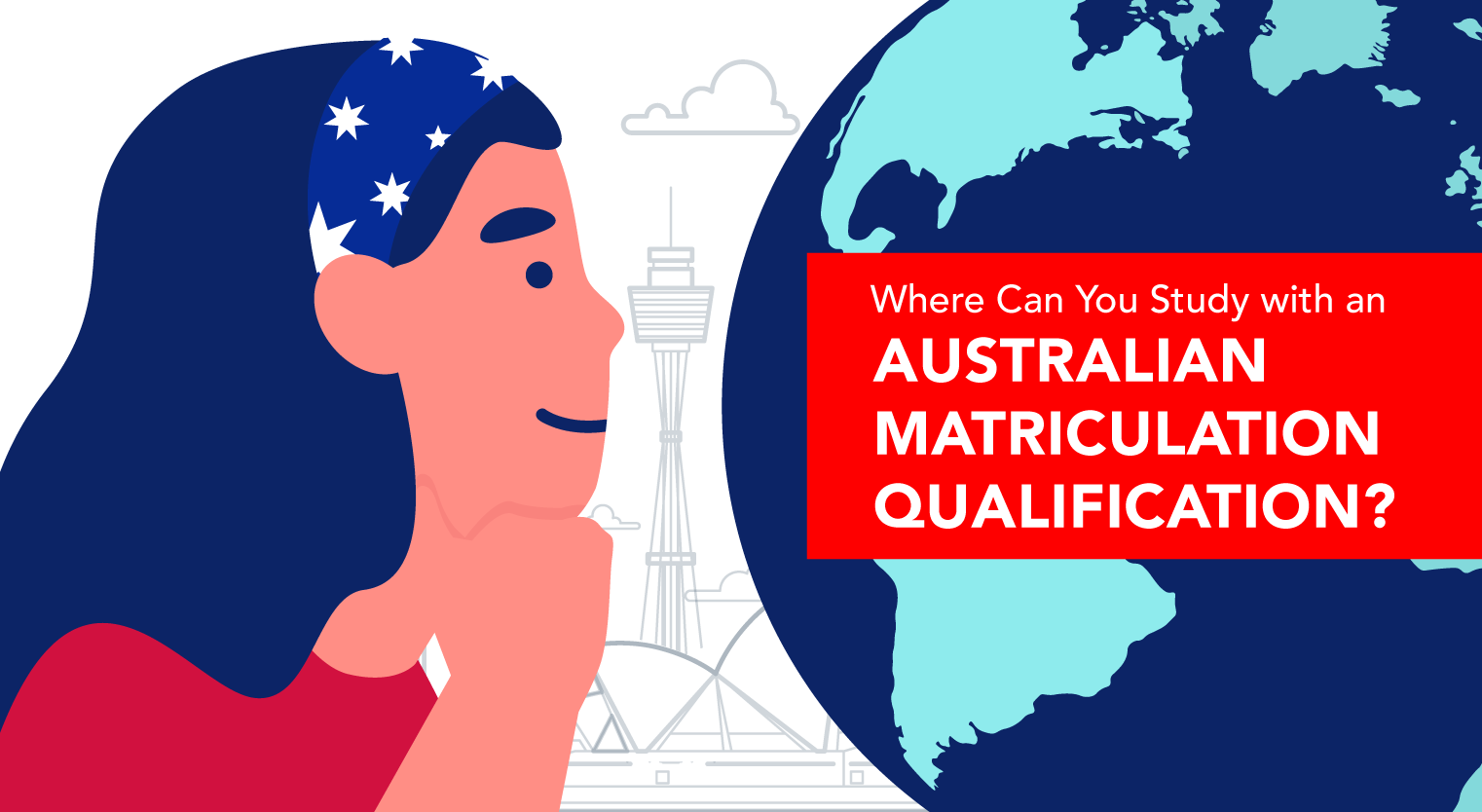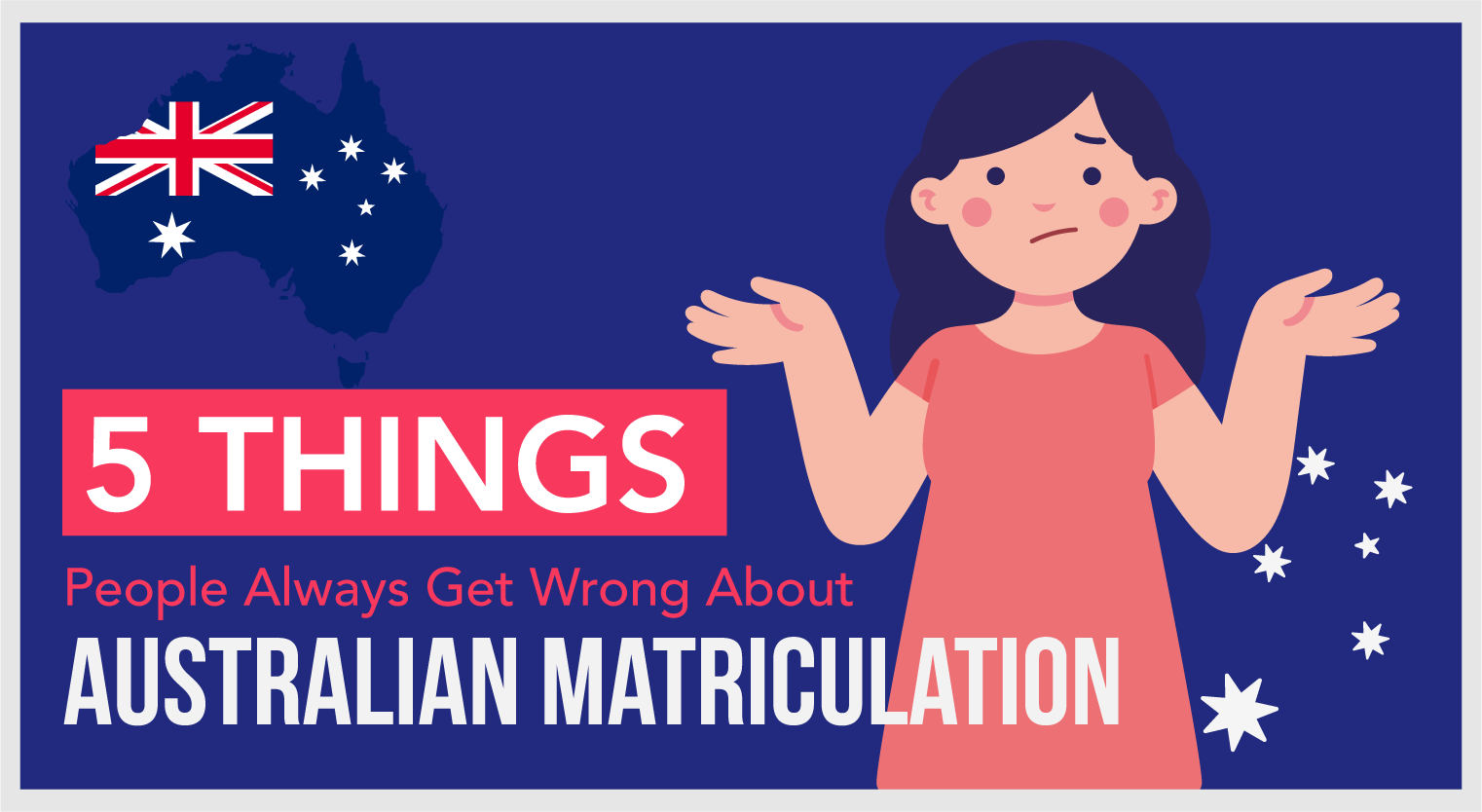The Complete Guide to Studying Australian Matriculation in Malaysia
What degree can you study with AUSMAT? Explore subjects, study pathways, requirements and compare fees to study this globally recognised pre-u in Malaysia.
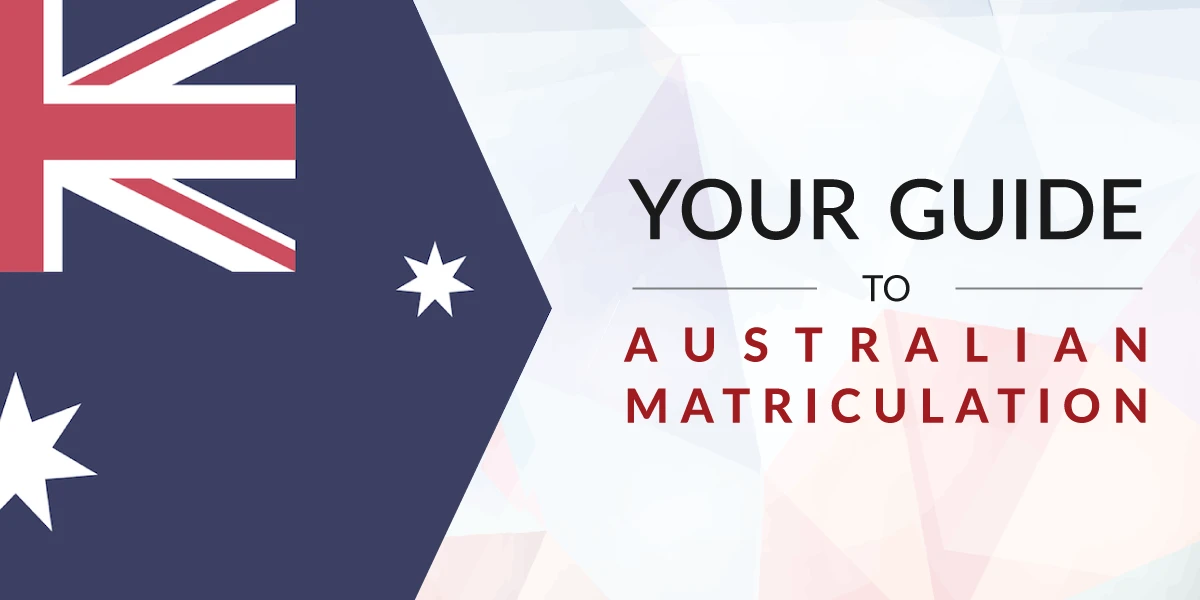
Australia is one of the top study abroad destinations globally — and for good reason. The country boasts high-quality education, a diverse and welcoming society, and a unique environment featuring bustling cities and breathtaking landscapes.
As a result, the Australian Matriculation (AUSMAT) programme has emerged as a compelling pre-university programme for many.
Whether you’re interested in studying in Australia or just looking for a globally recognised qualification that’s both rigorous and flexible, this comprehensive guide will detail everything you need to know about AUSMAT. Gain valuable insights into its governing bodies, course structure, subject combinations and prerequisites, and learn how AUSMAT can unlock endless opportunities for your academic future.
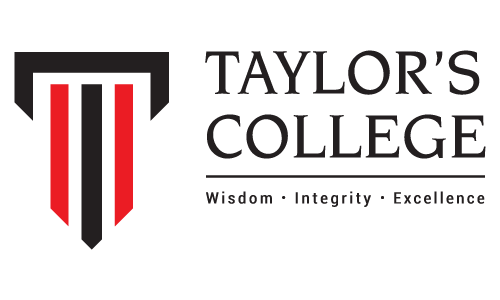
Taylor's College
AUSMAT (Science)
✓Future-ready education that helps you discover your interests, build leadership skills and develop learning techniques to excel at university and beyond
#1. What is Australian Matriculation?
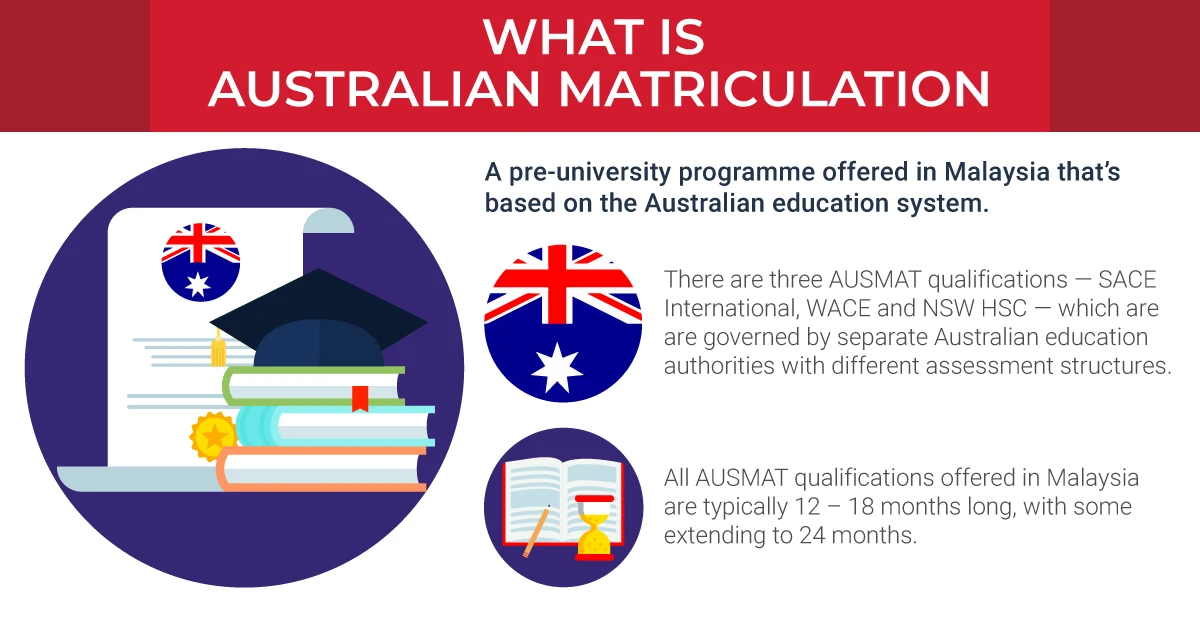
The Australian Matriculation (shortened as AUSMAT) is a pre-university programme from Australia that’s offered in Malaysia. The AUSMAT qualification is equivalent to the Year 12 curriculum of Australian high schools (think STPM) where you will prepare yourself for a university degree through in-depth study of a number of subjects.
In Malaysia, there are 3 types of AUSMAT qualifications offered — South Australian Certificate of Education International (SACE International), Western Australian Certificate of Education (WACE) and New South Wales High School Certificate (NSW HSC). Each of these qualifications are governed by separate Australian education authorities with different assessment structures.
In general, all AUSMAT qualifications offered in Malaysia are typically 12 – 18 months long, with some extending to 24 months. Exams are usually held twice a year in April and November.
a) SACE International
The South Australian Certificate of Education International (SACE International) is a pre-university programme administered by the South Australian Certificate of Education (SACE) Board in Australia.
In this programme, you will be required to study 5 subjects, with ‘English as an Additional Language’ being mandatory. The assessment consists of 70% school-based tasks and 30% external exams.
At the end of the programme, your grades will be converted into a single score called the Australian Tertiary Admission Rank (ATAR). This score is calculated based on the 4 highest-scoring subjects and 50% from the 5th highest-scoring subject.
b) Western Australian Certificate of Education (WACE)
Another Australian certificate of education is the Western Australian Certificate of Education (WACE) which is administered by the School Curriculum and Standards Authority (SCSA) in Western Australia.
With WACE, you will take 5 subjects where four of the subjects must be ATAR courses and one must be ‘English as Additional Language or Dialect’ (an ATAR course) or General English (non-ATAR course). The assessment structure for WACE is 50% school-based assessments and 50% external examinations. You will also need to pass the Online Literacy and Numeracy Assessment (OLNA), a multiple-choice computer-based test to assess and ensure that you meet the minimum standard of literacy and numeracy.
Similar to other AUSMAT programmes, your grades will be converted into an ATAR score. For WACE, this is derived based on the 4 highest-scoring ATAR subjects.
c) New South Wales High School Certificate (NSW HSC)
Administered by the New South Wales Education Standards Authority (NESA), the New South Wales High School Certificate (NSW HSC) is another Australian certificate of education that you can opt to study in Malaysia.
You will need to choose English plus 5 other subjects. The NSW HSC offers a balanced assessment approach with 50% internal school-based assessments and 50% external examinations.
Upon completion, your grades are consolidated into an ATAR score.
Pro Tip
Not all colleges practise the same terminology! Some universities refer to their WACE / SACE International programmes as AUSMAT. Be mindful of what the official term is (e.g. SACE International, WACE) and make sure to check which education authority is administering the programme.

#2. AUSMAT Requirements in Malaysia
Similar to other pre-university courses such as A Level, STPM and Foundation, AUSMAT in Malaysia requires a minimum of 5Cs, including English at SPM, IGCSE or equivalent.
However, there are subject prerequisites you need to fulfil if you wish to pursue certain Science (e.g. Physics, Chemistry, Biology) and Math subjects (e.g. Specialist Mathematics). What this means is that you need to have studied and achieved the minimum required grades for the relevant subjects at SPM level in order to take these subjects for your Australian Matriculation.

Taylor's College
AUSMAT (Science)
✓Future-ready education that helps you discover your interests, build leadership skills and develop learning techniques to excel at university and beyond
#3. Studying AUSMAT in Malaysia
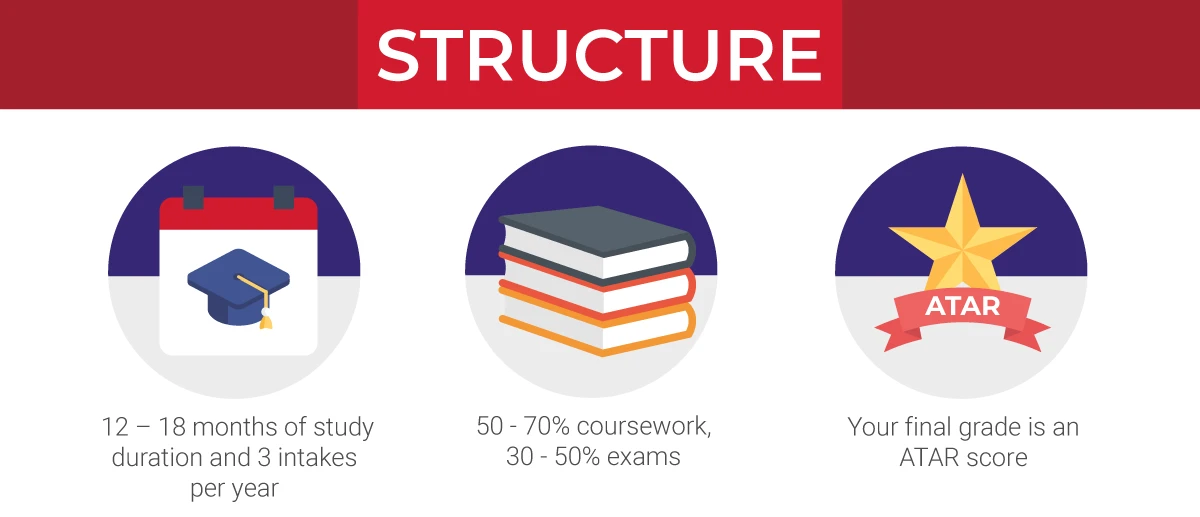
The AUSMAT programme is designed to cultivate independent thinkers and lifelong learners, providing you with a diverse range of subjects that you can mix and match based on your interests and career aspirations.
a) Programme duration and intakes
In Malaysia, the study duration for AUSMAT is generally 12 – 18 months, with some institutions offering a 24-month programme for a more gradual transition.
The intakes are typically in January, April/June and August, allowing you to choose a starting point that aligns with your personal and academic timelines. Exams are usually held twice a year in April and November. As such, which intake you choose will impact the duration of your studies. For instance, opting for the August intake will mean a longer duration compared to January.
b) Curriculum and assessment structure
Unlike some other more exam-based programmes, AUSMAT emphasises on holistic education and self-directed learning. The curriculum is designed to develop critical thinking, adaptability, communication, time management and teamwork skills, all of which will prepare you for the demands of university and beyond.
This can be seen through the AUSMAT assessment structure which consists of a combination of continuous school-based assessments (50% - 70%) and final exams that are held at the end of the programme (30% - 50%).
AUSMAT’s school-based assessments comprises a range of topic tests, assignments, tasks, research and practicals which are held throughout the programme. This component removes the pressure of a single high-stakes exam at the end. Instead, you’ll be kept on your toes throughout the course.
Some examples of school-based assessments and coursework in AUSMAT are:
- Sciences: Practicals, lab work, lab reports
- Mathematics: Weekly topic quizzes and tests
- English: Oral and speaking tests
- Economics: Quizzes, tests, short essays
c) AUSMAT grading system and ATAR
At the end of your AUSMAT studies, you will receive an Australian Tertiary Admission Rank (ATAR) based on your academic performance. The ATAR is a score between zero and 99.95, in intervals of 0.05, with 99.95 being the highest possible rank. It shows your ranking compared to other final year students who have completed the course with you.
Your ATAR is calculated based on how well you do in your individual subjects, with some adjustments made based on subject difficulty. While the detailed calculations might differ from one AUSMAT programme to another (e.g. the ATAR calculation for WACE is different from SACE International), the core principle remains consistent — the ATAR ranks students in their age cohort based on their academic achievement in Year 12. More importantly, ATARs, regardless of which AUSMAT programme you take, are treated as equivalent.
Again, it is crucial to understand that the ATAR represents a ranking, not a percentage score. For instance, an ATAR of 70 does not mean you have scored 70%. Rather, it means that you’ve performed better than 70% of your peers and are in the top 30% of your year group.
d) AUSMAT fees in Malaysia
AUSMAT fees in Malaysia can go from RM15,000 to RM180,000.

#4. What Subjects Should You Choose For AUSMAT?
Most AUSMAT programmes in Malaysia have a wide range of subjects that will enable you to get into various fields, including Business, Finance, Law, Accounting, Engineering and Science. However, the degree you get into will largely depend on the subject combinations you choose, so it’s important that you choose wisely.
If you already have an idea of the degree you would like to pursue after your AUSMAT studies, this list of recommended and essential subjects by degree will help you choose your subject combinations.
Note that English or English as an Additional Language is compulsory at most colleges.
| Degree | Recommended Subjects |
|---|---|
| Accounting, Business, Economics, Finance | Essential: Mathematics & Economics Recommended: Accounting, Law, Psychology, Business Management |
| Actuarial Science | Essential: Mathematics, Specialist Mathematics Recommended: Chemistry, Physics, Accounting, Economics |
| Biochemistry, Biomedical Science, Nutrition | Essential: Chemistry, Biology & Mathematics Recommended: Physics, Psychology, Nutrition |
| Computer Science | Essential: Mathematics Recommended: Physics, Specialist Mathematics, Economics |
| Engineering | Essential: Mathematics & Physics Recommended: Chemistry, Specialist Mathematics, Economics |
| Law | Essential: None Recommended: Mathematics, Economics, Law, Accounting |
| Medicine, Dentistry & Pharmacy | Essential: Chemistry, Biology & Mathematics Recommended: Physics, Psychology |
If you’re not exactly sure what degree you want to study, you can ask yourself which field you’re most interested in — Arts, Science or Business. Thereafter, it’ll be easier for you to pick out subjects that fit your field of interest.
Regardless, here are some tips for picking the right combination of subjects:
- Choose subjects that you will likely enjoy – When a particular topic interests you, it becomes less of a chore to study. Also, it’s always easier to excel at something when you enjoy doing it!
- Choose subjects that suit your strengths – Every subject is unique and involves a different skill set. Some subjects require creativity or essay writing, while others may challenge your analytical and critical thinking skills. To do well in this programme, play to your strengths!
- Choose subjects that relate to jobs you’re interested in – Take a personality quiz to help you decide which fields would suit you best.
Pro Tip
Most colleges will have a fixed set of subjects for you to choose from based on the more popular career choices. However, if you don't seem to find the exact combination that you want, don't fret! Most colleges will be able to find a way to help you achieve your desired combination.

Taylor's College
AUSMAT (Science)
✓Future-ready education that helps you discover your interests, build leadership skills and develop learning techniques to excel at university and beyond
#5. Why Study Australian Matriculation?
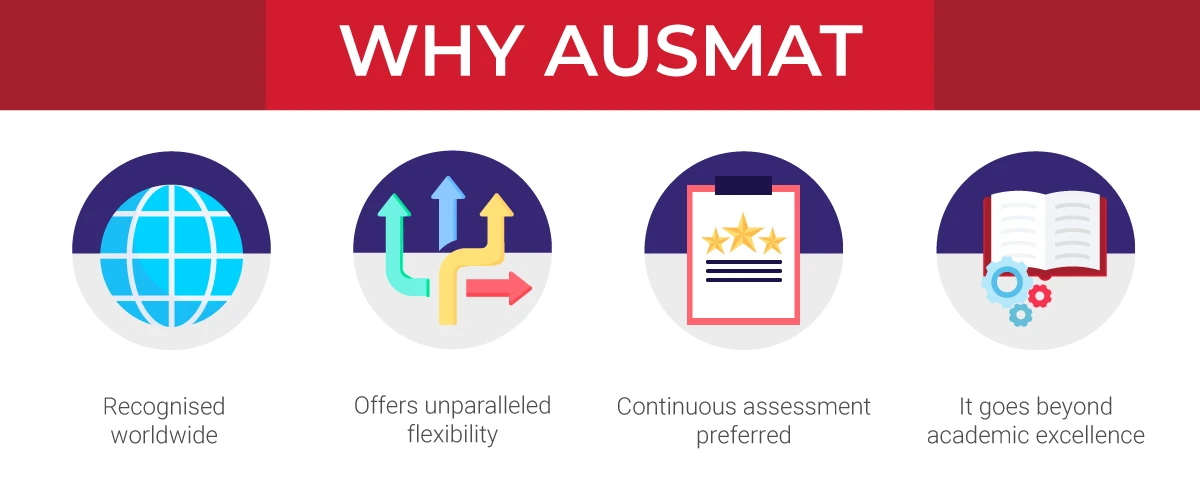
If you’re considering pursuing a university degree in Australia, then AUSMAT is a clear front-runner. However, even if Australia isn’t in your plans, there are numerous compelling reasons to opt for AUSMAT.
a) It is internationally recognised by many countries overseas
The ATAR score that you obtain from SACE International, WACE or NSW HSC is widely accepted internationally, with thousands of students successfully gaining entry into universities worldwide.
Not only is it accepted in Australia and New Zealand, but you can also use it to gain entry into universities in the UK, USA, Singapore, Hong Kong and many others. In addition, all private universities in Malaysia recognise AUSMAT.
So, as long as your results meet the entry requirements, you won’t have to worry about having an unrecognised qualification.
b) It offers unparalleled flexibility
Can’t decide if you want to go for science, arts or business? With AUSMAT, you won’t be confined to a single stream.
With 5 subjects to choose, AUSMAT gives you the flexibility to select from both science and arts disciplines, allowing you to explore your interests. This breadth of choice empowers you to explore interdisciplinary areas and obtain a well-rounded education, something that’s rarely found in other pre-university programmes.
c) Its continuous assessment structure prepares you well for university
If the 100% exam system brings back nightmares from your SPM days, then AUSMAT is a good choice for you. Rather than placing the entire weight of your grade on one major exam, AUSMAT balances this with regular assessments conducted by your college throughout the entire programme. This allows you to gain consistent feedback on your progress, allowing you to understand your strengths and weaknesses and improve over time.
More importantly, this assessment approach is similar to what you would experience at university where you’ll face a blend of coursework, group projects and presentations. Being exposed to this early on will not only prepare you academically but also ensure a smoother transition into university.
d) The curriculum goes beyond academic excellence
AUSMAT isn't just about grinding away at the books. Sure, you’ll learn a lot academically, but you’ll also grow as a person and develop other skills beyond traditional academia. With its continuous assessment, group work and assignments, you’ll learn how to think critically, be adaptable, work with others and take on research challenges. Plus, you’ll also get better at managing your time, communicating with others and coming up with creative ideas.
In short, AUSMAT is designed to not just impart knowledge but also ensure that you know what to do with what you know.

#6. Should You Study Australian Matriculation?
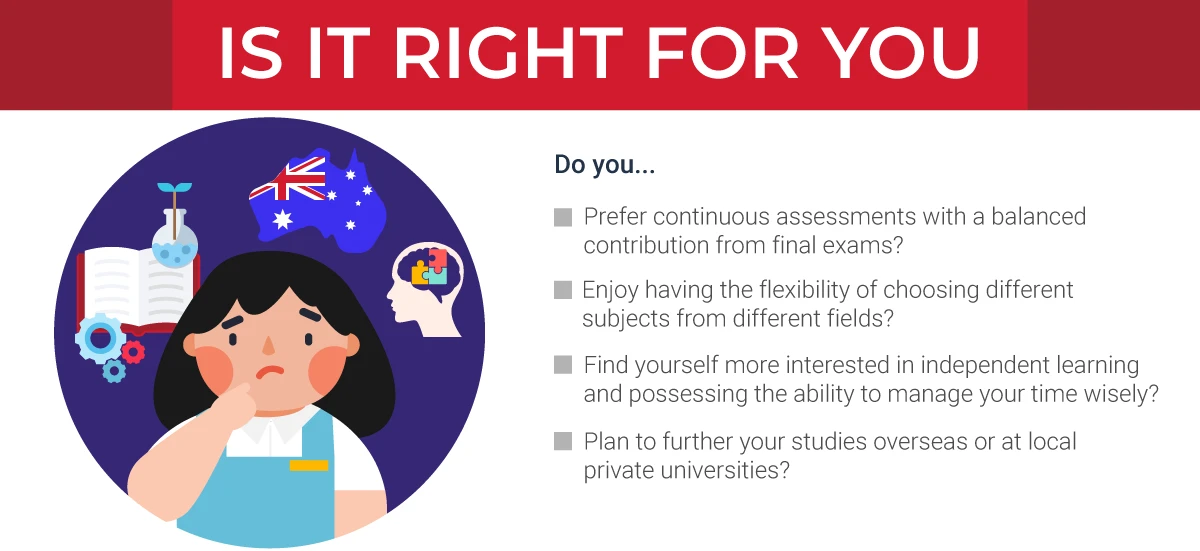
If you’re wondering if Australian Matriculation is right for you, here are some questions to think about:
- Do you prefer continuous assessments (e.g. class-based tests, research papers, assignments) with a balanced contribution from final exams?
- Do you enjoy having the flexibility of choosing different subjects from different fields which allows you to explore different interests?
- Are you more interested in independent learning and have the ability to manage your time wisely?
- Are you planning to further your studies overseas or at local private universities?
If you answer yes to most of these questions; then, AUSMAT may be right for you.
Remember that the key to excelling in SACEi or WACE is to be consistent in your studies throughout the entire year. Doing poorly on a quiz or two may not seem like much, but when you add it all up, you’ll realise that it does make a difference.
Although most colleges require you to have at least 5 credits at SPM, we usually recommend you to have at least 5Bs, with good grades in Math and English.

Taylor's College
AUSMAT (Science)
✓Future-ready education that helps you discover your interests, build leadership skills and develop learning techniques to excel at university and beyond
#7. Frequently Asked Questions About AUSMAT
a) Is AUSMAT hard?
AUSMAT is often compared to A Level as being the “easier” option but that couldn’t be farther from the truth.
For starters, keep in mind that you will have 5 subjects and that you’re expected to cover both depth and breadth in your chosen areas. In addition, unlike other pre-university programmes that may have a higher weight towards final exams, AUSMAT places significant emphasis on continuous assessment, which means you must be extremely consistent and have excellent time management skills. Finally, AUSMAT also requires skills such as critical thinking, research, communication and teamwork, which can be challenging for some but also highly rewarding.
b) Which universities accept AUSMAT?
Contrary to popular belief, the AUSMAT qualification is not only recognised in Australia but it is also acknowledged far and wide across the globe. Here's a list of the top 7 countries that accept Australian Matriculation as a credential.
- The United Kingdom
- United States of America
- Canada
- New Zealand
- Hong Kong
- China
- Singapore
If you’re having doubts about whether AUSMAT can grant you access abroad, you’ve got your answer.
c) Is English compulsory in AUSMAT?
Yes, English is compulsory in AUSMAT. To pursue the course, you’ll need a credit in English at SPM or equivalent. Students who wish to pursue this pre-university programme but don’t meet this criteria are required to undergo an English placement test.
d) What’s the difference between SACE International and WACE?
The major differences between SACE International and WACE is that both programmes are administered by different government bodies and have different grading systems.
SACE International is governed by the South Australian Government and the students are graded based on 70% coursework and 30% final examination. WACE, on the other hand, falls under the Western Australian Government and is graded on a 50% coursework and 50% final examination basis.

#8. Best Institutions for Australian Matriculation in Malaysia
If you think Australian Matriculation suits you, then check out some of the best universities for AUSMAT in Malaysia.
Taylor's College
Subang Jaya, Selangor
Intake
Jan*, Feb, Mar*, Apr, Jul*, Aug
Tuition Fees
RM30,800
Seats are filling up fast! Secure yours by enrolling through EduAdvisor. Get a RM1,000 registration waiver from Taylor's too! T&C apply.
